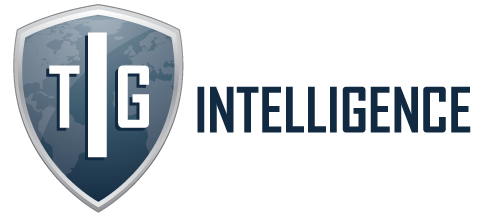Facial recognition technology has come a long way since it first came to market several years ago. Initially plagued with technical challenges and widely viewed as a futuristic solution, facial recognition is now firmly implanted in numerous consumer and business products and applications. New advancement in software, specifically in the areas of algorithms, neural networks and deep learning and/or artificial intelligence (AI), have all dramatically improved both the performance and accuracy of facial recognition further expanding its use for an increasing number of applications.
The Intelligence Group utilizes Facial Recognition in our physical security products along with Information Technology products. Unlike key cards that can be stolen or hacked, facial recognition access control provides sound security at your entry points. Legacy access control systems require the physical exchange of cards, considering the COVID-19 pandemic and increased awareness on the spread of disease-causing germs, this may not be ideal. Face recognition allows users to get into your facility without touching anything. Users do not have to worry about forgetting or misplacing their badges or key cards. They only need to momentarily pause at a camera, and they can get into your building within seconds.
Who Uses Facial Recognition
Many agencies and organizations use facial recognition — and in a lot of different places. Here are some common examples:
- U.S. government at airports. Facial recognition systems can monitor people coming and going in airports. The Department of Homeland Security has used the technology to identify people who have overstayed their visas or may be under criminal investigation. Customs officials at Washington's Dulles International Airport made their first arrest using facial recognition in August of 2018, catching an alleged impostor trying to enter the country.
- Mobile device manufacturers. Apple first used facial recognition to unlock its iPhone X, the 11th generation iPhone made available in late 2017, and has continued developing the technology with the iPhone XS. Face ID authenticates — it makes sure you are you when you access your phone. Apple says the chance of a random face unlocking your phone is about one in 1 million.
- Colleges in the classroom. Facial recognition software can, in essence, record class attendance. If you decide to cut class, your professor could know. Don’t even think of sending your brainy roommate to take your test!
- Social media companies on websites. Facebook uses an algorithm to spot faces when you upload a photo to its platform. The social media company asks if you want to tag people in your photos. If you say yes, it creates a link to their profiles. Facebook can recognize faces with 98 percent accuracy.
- Businesses at entrances and restricted areas. Some companies have traded security badges for facial recognition systems. Beyond security, it could be one way to get some face time with the boss!
- Religious groups at places of worship. Mega churches with access to sophistocated resources have used facial recognition to scan their congregations to see who’s present. It’s a good way to track those in regular attendance and also visitors, as well as to tailor electronic donation requests to a target audience.
- Retailers in stores. Retailers can combine surveillance cameras and with facial recognition technology to scan the faces of shoppers. One goal: identifying suspicious characters, potential shoplifters, and frequent offenders.
- Airlines at departure gates. You might be accustomed to having an agent scan your boarding pass at the gate when boarding your flight. At least one airline scans your face, eliminating the need for a gate agent.
- Marketers and advertisers in campaigns. Marketers often consider things like gender, age, and ethnicity when targeting groups for a product or idea. Facial recognition can be used to define those audiences, even at a highly attended event like a concert.
During the COVID-19 pandemic we deployed facial recognition devices to our healthcare customers. They used them to take the temperature of employees and visitors and also determine if masks were worn in the healthcare facility. They even deployed them to their partners to help keep everyone safe.
Most recently we installed facial recognition devices for a private vault customer. These devices are used to gain access to the facility 24/7/365. Increasing security, reducing time to enter and eliminating the need for onsite guards. Your face is the key…


